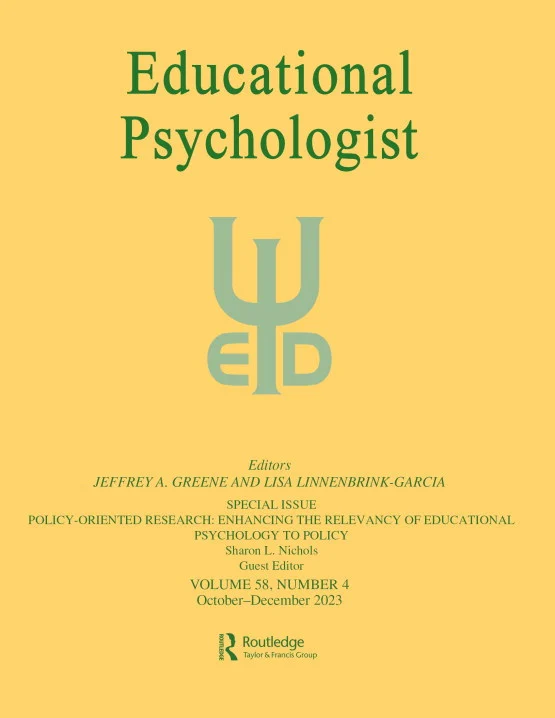A home-to-school approach for promoting culturally inclusive family–school partnership research and practice
IF 11.4
1区 心理学
Q1 EDUCATION & EDUCATIONAL RESEARCH
引用次数: 11
Abstract
Abstract In this article, parental role construction is framed from a sociocultural perspective. Applying this perspective foregrounds the need for researchers and practitioners to gain an insider’s understanding of how families themselves construct their roles in supporting children’s education. By doing so, the field can reimagine family–school partnerships that are inclusive of normative family practices across ethnoculturally diverse families and develop interventions that build on cultural heritage, community strengths, and families’ funds of knowledge. In this article, a home-to-school, strengths-based conceptualization of family engagement that challenges deficit-based and school-centric orientations toward families is described. Evidence from three innovative research projects will be discussed that shows by being curious about how parents construct their roles and support their children at home (both directly and indirectly), researchers and practitioners can gain useful information to co-create more culturally inclusive and welcoming school environments, as well as more meaningful home–school connections.促进文化包容的家庭-学校伙伴关系研究和实践的家到学校方法
摘要本文从社会文化的角度对父母角色的建构进行了探讨。应用这一观点,研究人员和从业人员需要获得内部人士对家庭本身如何在支持儿童教育方面构建其角色的理解。通过这样做,该领域可以重新构想家庭-学校伙伴关系,这种伙伴关系包括跨民族文化多样化家庭的规范家庭实践,并制定基于文化遗产、社区优势和家庭知识储备的干预措施。本文描述了一种以家庭到学校、优势为基础的家庭参与概念,挑战了以缺陷为基础和以学校为中心的家庭取向。本文将讨论来自三个创新研究项目的证据,这些证据表明,通过对父母如何在家中(直接或间接)构建自己的角色和支持孩子的好奇,研究人员和实践者可以获得有用的信息,共同创造更具文化包容性和热情的学校环境,以及更有意义的家校联系。
本文章由计算机程序翻译,如有差异,请以英文原文为准。
求助全文
约1分钟内获得全文
求助全文
来源期刊

Educational Psychologist
Multiple-
CiteScore
19.10
自引率
3.40%
发文量
16
期刊介绍:
The Educational Psychologist is a scholarly journal dedicated to exploring the psychology of learning and instruction. Articles in this journal encompass a diverse range of perspectives, from examining psychological mechanisms to exploring social and societal phenomena related to learning and instruction. The journal publishes theoretical and conceptual articles, as well as reviews and meta-analyses, that significantly contribute to theory or advance the methods used to explore educational psychology. Emphasizing innovation and advancing understanding, the journal does not publish articles solely reporting the methods and results of empirical studies; instead, all submissions, including reviews and meta-analyses, must offer clear implications for advancing theory. In addition to regular articles, the journal features special issues that delve into important themes in educational psychology, along with focal articles accompanied by peer commentary.
 求助内容:
求助内容: 应助结果提醒方式:
应助结果提醒方式:


